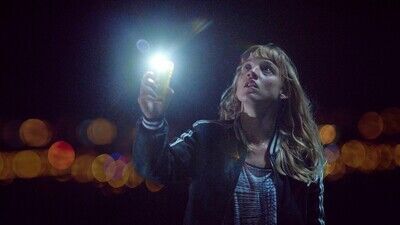Much could be said of how adventurous Mara is here and how exacting every member of this deep ensemble assumes their part — but it’s Carmona, playing a man in clear agony, who’s every word is delivered with cataclysmic intent that always draws our interest. When he finally blows, unleashing a cathartic primal scream that even stops the inventive ticking score, it is with the force of broken promises, continued duress, forced assimilation, and the toll of the unrelenting clock that leaves an audible gasp for a performance that opens a searing window into the lives of the exploited, completing this singular masterwork.

Before it ever really gets going, “Another End,” the sleepy high concept Sci-Fi, overstays its welcome. That’s a pity; on paper director Piero Messina has an intriguing concept to work with. A forlorn recently widowed Sal (Gael García Bernal) spends his days searching for solace from his sister Ebe (Bérénice Bejo) following the death of his wife Zoe in a horrific car crash. Ebe is so worried about her brother she recommends he take advantage of the family discount, so to speak: She heads the recruitment of hosts, everyday people who offer their bodies to her company Another End so that the memories of the deceased can be downloaded into them. While the technology is a miracle, it does have a few drawbacks: It’s not a permanent change; host and bereaved agree on a set timeline, allowing the latter the opportunity to say goodbye.
At first, Sal is hesitant. After all, physically, this person is a stranger. But when the new Zoe (Renate Reinsve) appears, he falls for her to the point of begging Ebe for more time. It isn’t worth boring you with any further plot details: Everything else — from the film’s interest in the ambiguity of identity and the extremes Sal’s love will take him — are pretty predictable until the narrative’s nauseating twist.
While watching “Another End” I couldn’t help but be reminded of the melodrama “Wander Darkly,” a far more warm, heartfelt interrogation of death. For a film about the pain of mourning, this one’s flat lighting and austere production design is cold and distant to the point of imperceptibility. Reinsve makes a game attempt playing two different characters, while Bernal tries his best to fulfill the necessary physical rigidity called for by the script with the requisite emotions necessary for the character — but they’re both fighting a losing battle.
It’s fitting then that “Another End” would have a misjudged false end, causing some in the Berlinale Palast to burst into laughter and audible groans. I for one was happy to bid this film adieu when the credits mercifully began to roll.

